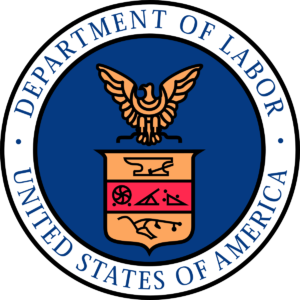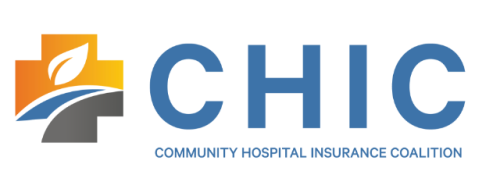They’re Here: The Draft 2018 ACA Reporting Forms
Association Health Plans Expansion
Critical HIPAA Compliance Gaps Exposed by HHS
Are You Up to Date on the Hottest Health Topics for August 2018?
Trouble Sleeping? Your Phone May Be to Blame
Did You Know: Amazon is getting into the pharmacy business
They’re Here: The Draft 2018 ACA Reporting Forms

The Internal Revenue Service (IRS) released draft 2018 forms for reporting under Internal Revenue Code (Code) Sections 6055 and 6056.
- 2018 draft Forms 1094-C and 1095-C were released July 11, 2018, and will be used by applicable large employers (ALEs) to report under Section 6056, as well as for combined Section 6055 and 6056 reporting by ALEs who sponsor self-insured plans.
- 2018 draft Forms 1094-B and 1095-B were also released in July 2018, and will be used by entities reporting under Section 6055, including self-insured plan sponsors that are not ALEs.
Draft instructions for these forms have not yet been released. The draft 2018 forms are substantially similar to the final 2017 versions.
ACTION STEPS
Employers should become familiar with these forms for reporting for the 2018 calendar year. However, these forms are draft versions only, and should not be filed with the IRS or relied upon for filing.
Background
The Affordable Care Act (ACA) created reporting requirements under Code Sections 6055 and 6056. Under these rules, certain employers must provide information to the IRS about the health plan coverage they offer (or do not offer) or provide to their employees. Each reporting entity must annually file all of the following with the IRS:
- A separate statement (Form 1095-B or Form 1095-C) for each individual who is provided with minimum essential coverage (for providers reporting under Section 6055), or for each full-time employee (for ALEs reporting under Section 6056); and
- A transmittal form (Form 1094-B or Form 1094-C) for all of the returns filed for a given calendar year
Reporting entities must also furnish related statements (Form 1095-B or 1095-C, or a substitute form) to individuals.
Forms must generally be filed with the IRS no later than Feb. 28 (March 31, if filed electronically) of the year following the calendar year to which the return relates. Individual statements must be furnished to individuals on or before Jan. 31 of the year immediately following the calendar year to which the statements relate.
2018 Draft Forms
The 2018 draft forms are substantially similar to the final 2017 versions. However, the revised version of the Form 1095-C clarifies that the “Plan Start Month” box in Part II will remain optional for 2018. The IRS previously indicated that this box may have been mandatory for the 2018 Form 1095-C.
Keep in mind that the 2018 draft instructions for these forms may include additional changes or clarifications, once released. Also, the IRS may make additional changes to these forms before releasing final 2018 versions.
Additional Resources
The 2017 versions of these forms are currently available on the IRS website:
- Form 1094-B and Form 1095-B (and related instructions); and
- Form 1094-C and Form 1095-C (and related instructions).
These forms must have been filed with the IRS no later than Feb. 28, 2018 (April 2, 2018, if filing electronically). However, the IRS extended the due date for furnishing individual statements for 2017 an extra 30 days, from Jan. 31, 2018, to March 2, 2018.
According to the IRS, information returns under Sections 6055 and 6056 may continue to be filed after the filing deadline (both on paper and electronically). Employers that missed the filing deadline should continue to make efforts to file their returns as soon as possible.
The IRS also previously released:
- Q&As on Section 6055 and Q&As on Section 6056; and
- A separate set of Q&As on Employer Reporting using Form 1094-C and Form 1095-C.
More Information
Please contact us for more information on reporting under Code Sections 6055 and 6056.
Association Health Plans Expansion
The Department of Labor (DOL) recently released a final rule that gives small businesses more freedom to join as a single group to purchase health insurance in the large group market or to self-insure. These arrangements are called association health plans (AHPs).

By forming AHPs, small employers can avoid certain Affordable Care Act (ACA) reforms that apply to the small group market. According to the DOL, this will provide small employers with more affordable health insurance options.
However, in exchange for lower premiums, AHPs may cover fewer benefits. Most AHPs will not be subject to the ACA’s essential health benefits reform, which requires that small group plans cover a core set of items and services, like mental health care and newborn care.
Employer Considerations
Small employers may want to consider banding together to form an AHP as a more affordable health insurance option. Employers should carefully review the AHP’s benefit design to make sure it is appropriate for their workforce. Because AHPs are regulated at the federal and state level, the availability of these plans will also depend on a state’s regulatory approach.
Eligibility
The final rule allows employers to form an AHP together that is a single ERISA plan if either of the following requirements is satisfied:
- The employers are in the same trade, industry, line of business or profession; or
- The employers have a principal place of business within a region that does not exceed boundaries of the same state or the same metropolitan area.
Speak with HealthSure Insurance Services, Inc. for more information.
Critical HIPAA Compliance Gaps Exposed by HHS

Over the last couple of years, the Department of Health and Human Services (HHS) conducted “desk audits” of 166 covered entities and 41 business associates.
These audits focused on select HIPAA privacy, security and breach notification requirements. HHS has not released its official findings from the audits yet, but it has identified serious compliance gaps in the following areas:
- Security risk analysis
- Security risk management
- Right of access to protected health information (PHI)
Employers that sponsor group health plans should periodically review their compliance with HIPAA rules, including whether their security analysis and risk management for electronic PHI is up to date. Employers should also watch for more guidance from HHS on these compliance requirements.
Are You Up to Date on the Hottest
Health Topics for August 2018?
-
Are You Up to Date On Your Immunizations?
- Infants and children (birth to age 6)
- Preteens and teens (ages 7-18)
- Adults (ages 19 and older)
- Pregnancy and vaccines
Every August, the National Public Health Information Coalition sponsors National Immunization Awareness Month to promote the importance of immunizations at all life stages. Vaccination protects everyone, from infants to the elderly, from serious illnesses and complications of vaccine-preventable diseases.

Being properly vaccinated not only protects you, but everyone else around you, from falling ill with serious illnesses like measles, polio, hepatitis and meningococcal meningitis.
Follow the provided links to learn if you and your loved ones are up to date on the recommended vaccinations for each stage of life:
For more information on vaccines, or to learn more about what vaccines you may need, click here or talk with your doctor.
-
Sunrays Aren’t the Only Thing You Can Catch at the Pool
As the temperature climbs, many Americans will flock to the pool to find some relief from the heat. While the cool waters can be refreshing, they could also be contaminated with bacteria that can make you sick. Read on to learn about the three most common illnesses you can catch from spending a day at the pool. 
Cryptosporidium (Crypto for Short)
Crypto, a chlorine-resistant parasite, is one of the most common culprits for post-pool day illness and causes diarrhea, stomach pain and nausea. Unfortunately, symptoms can last for up to two weeks.
To avoid getting sick, don’t swallow pool water or touch your face until you’ve showered with soap and hot water.
Pinkeye
Between the chemicals and other people’s bodily fluids in the pool, it shouldn’t be a surprise that you can catch pinkeye from swimming in a shared pool or hot tub.
To avoid getting this infection, wear well-fitted goggles every time you get into the water.
Hot Tub Rash
The warm water in hot tubs causes chlorine to break down quickly, making the chemical ineffective in killing the germ that causes an itchy skin infection that can lead to a bumpy, red rash.
To avoid getting this rash, shower immediately after going into the hot tub and be sure to wash your swimming suit before wearing it again.
Trouble Sleeping? Your Phone May Be to Blame

Yes, you read that headline right. According to a new study, using your phone before you go to bed can disrupt your sleep schedule and prevent you from getting a good night’s sleep.
Specifically, the study found that those who use smartphones or tablets before bed went to bed later and had a later sleep onset than those who didn’t. The study also found that those who used their phone or tablet before going to sleep had lower levels of the sleep-regulating hormone, melatonin. Lastly, the study found that electronic device usage before bed reduced the period of rapid eye movement (REM) sleep, a vital component in our sleep patterns.
So, if you’re having trouble sleeping, try putting your phone or tablet away before heading to bed.
Amazon announced it will be purchasing the online pharmacy PillPack. The deal is expected to close before the end of the year.
With PillPack, an online pharmacy startup that earned more than $100 million in revenue last year, Amazon is now able to enter the prescription market.
Other large mergers, like CVS-Aetna, indicate that industry giants are already trying to lower health care costs. Amazon’s latest acquisition will likely pressure the industry to continue that trend. Stay tuned for more developments as new details emerge in the coming months.



